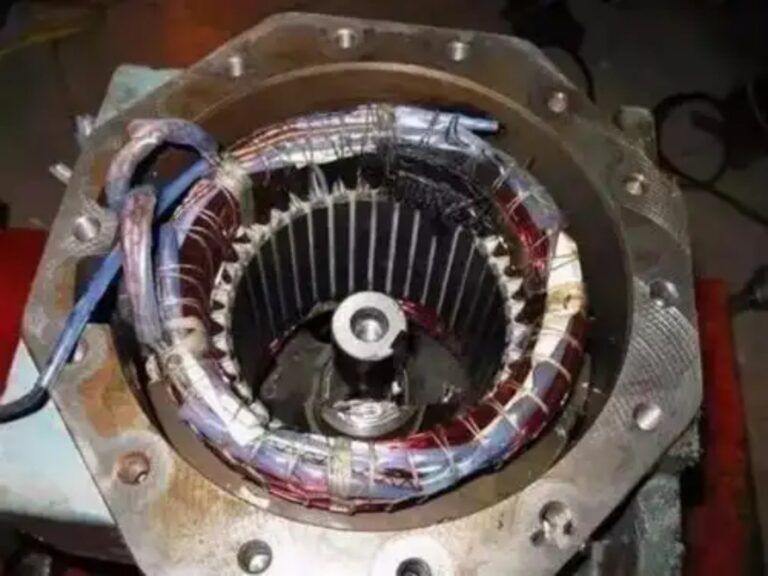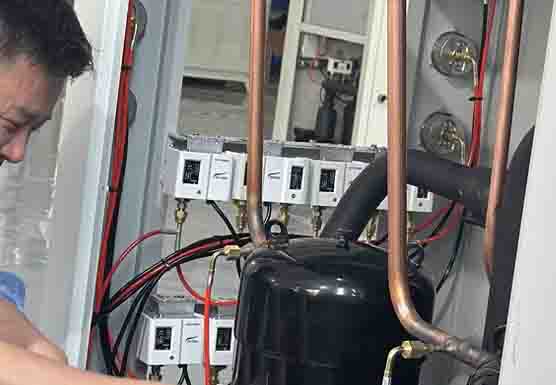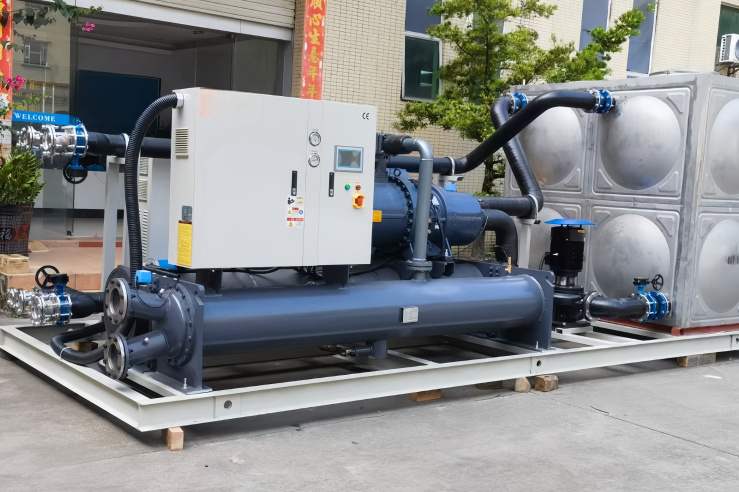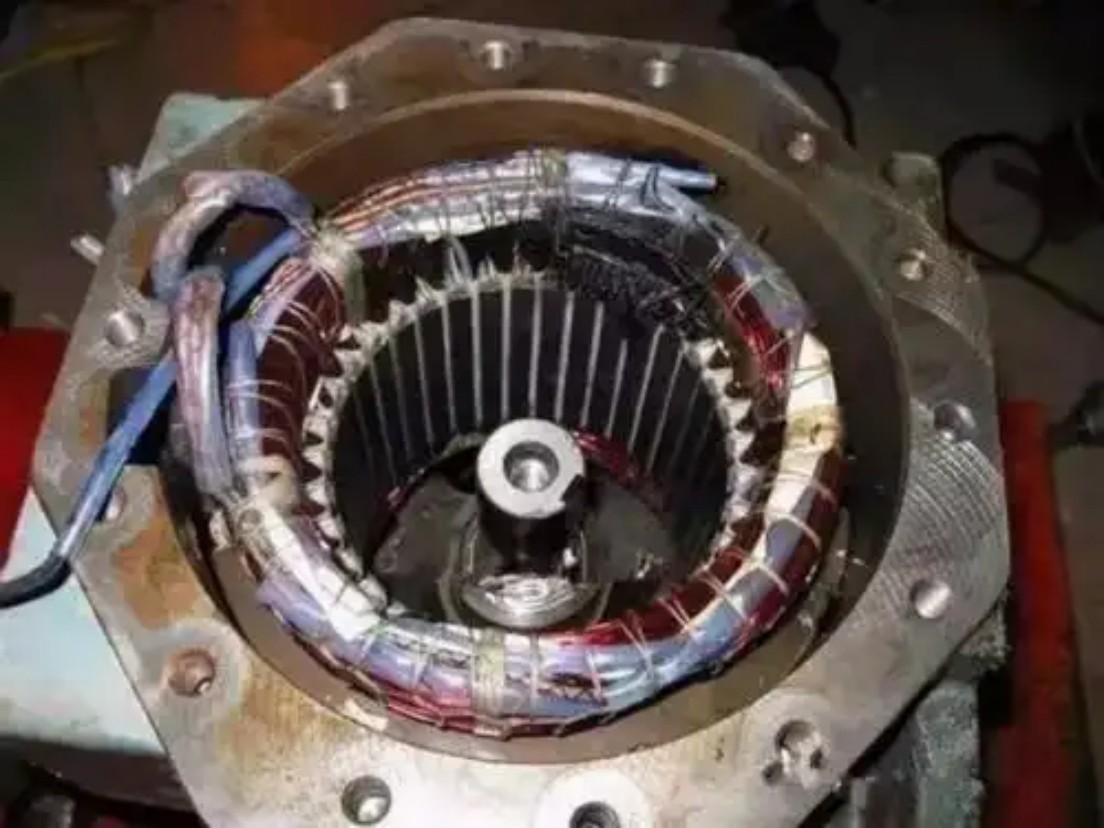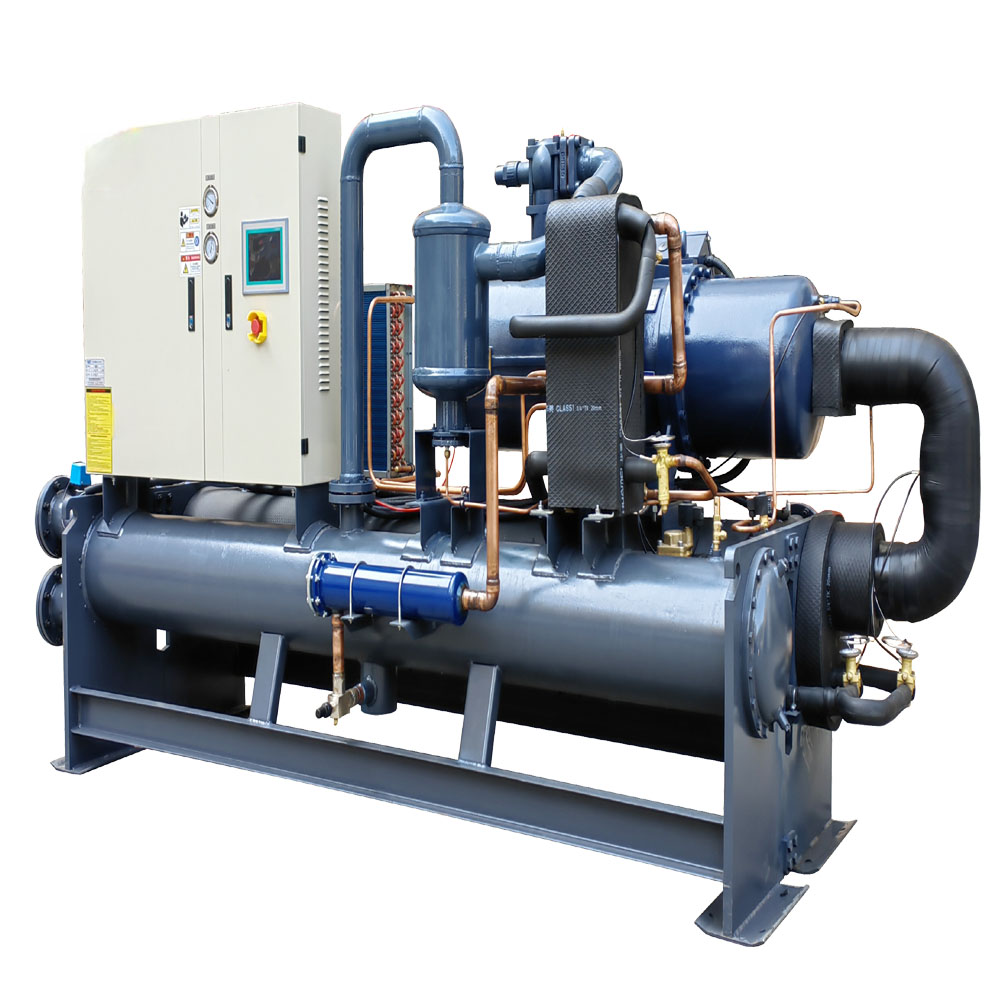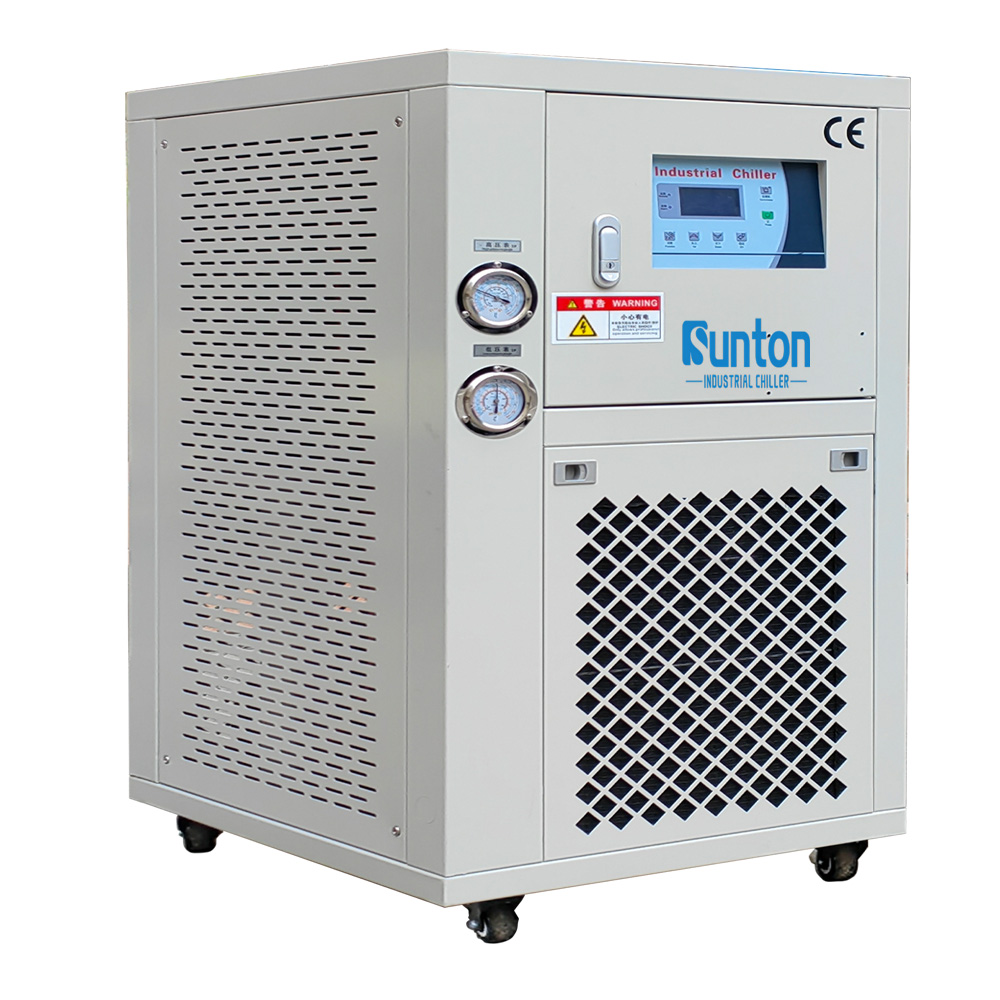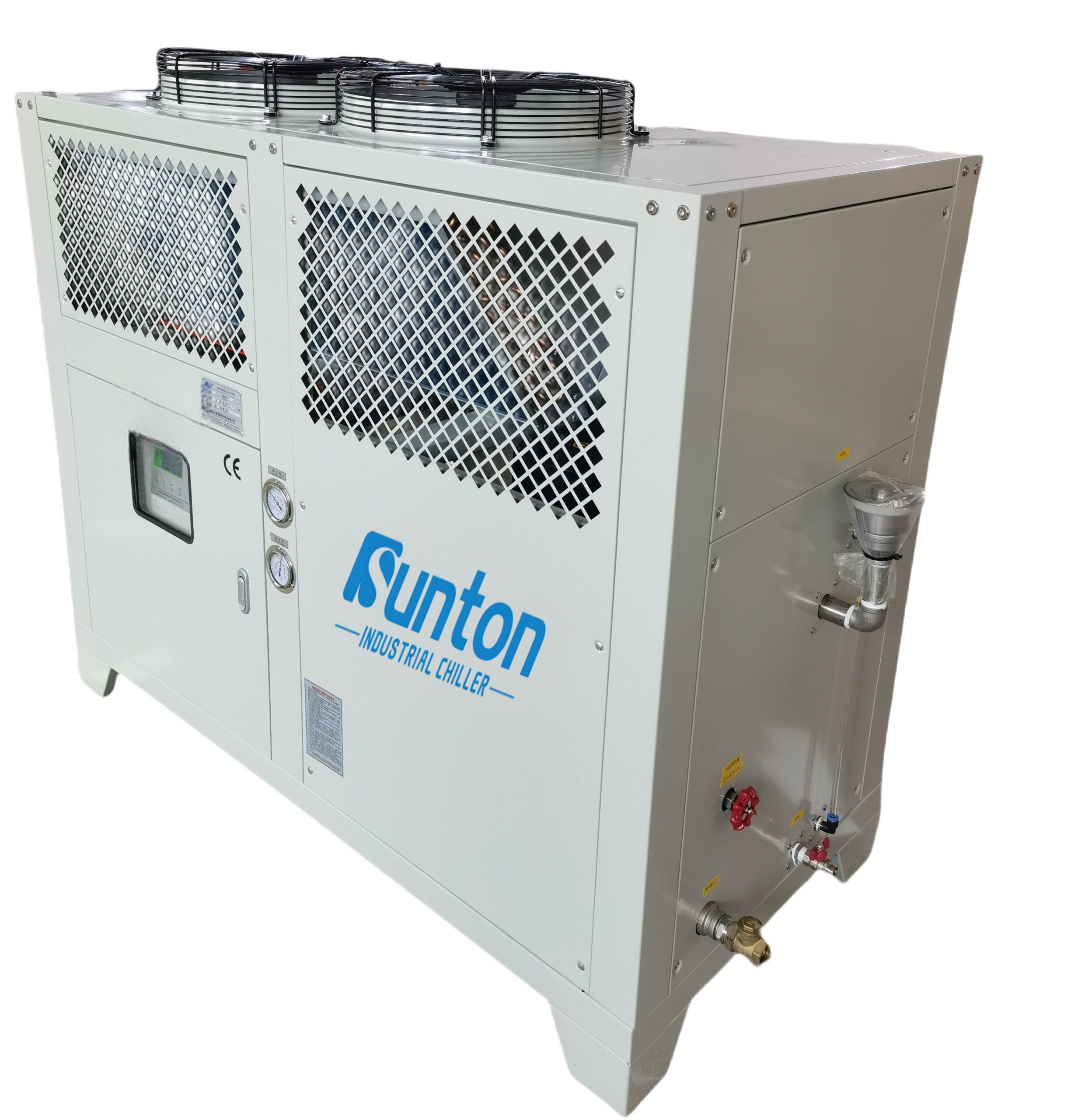-
Даліншань Індастріал Гуандун
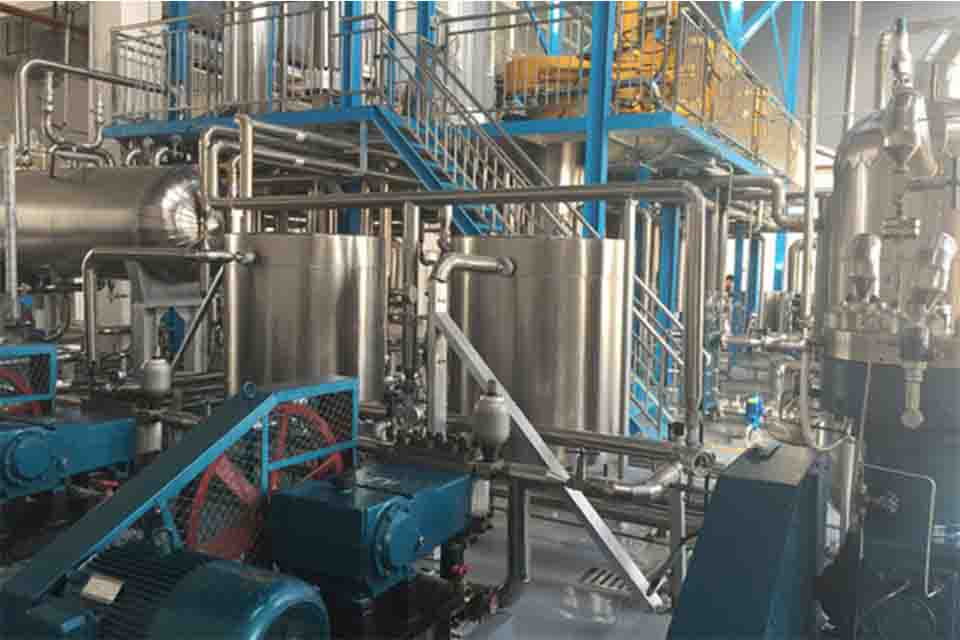
Чиллери для молочних ферм
Холодильники молочних продуктів ComCompact: ідеальне рішення для охолодження, спеціально розроблене для сирого молока
Dairy Chillers: Maximize Milk Quality & Profits
Keep raw milk fresh and safe with efficient охолоджувачі молока, designed for fast cooling and energy savings. Learn which тип чиллера works best for your farm or processing plant—from compact units to high-capacity systems.
✅ Key benefits:
✔️ Preserves milk quality & extends shelf life
✔️ Reduces bacteria growth with rapid cooling
✔️ Lowers operational costs with energy-efficient options
Ideal for small dairies & large milk processors. Choose the right chiller to boost productivity and profits!
Зміст
Що таке охолоджувач молока?
А охолоджувач молока є a охолодження розроблена система конкретно швидко прохолодного сирого молока після доїння. Подумайте про це як про великий холодильник для себе молоко, невпинно працюючи, щоб зберегти його свіжим і безпечним. Ця важлива частина обладнання запобігає розмноженню бактерій, зберігаючи якість і подовжуючи термін зберігання вашого цінного продукту шляхом ефективного охолодження та безпечної пастеризації.
Чому швидке охолодження так важливо? Свіжий молоко є теплим і є ідеальним середовищем для розмноження бактерій. Без швидкого охолодження ці бактерії швидко розмножуються, псуючи молоко і впливає на його смак, текстуру та безпеку. А чиллер швидко знижує температура молока в безпечну зону, пригнічуючи ріст бактерій і зберігаючи її якість.

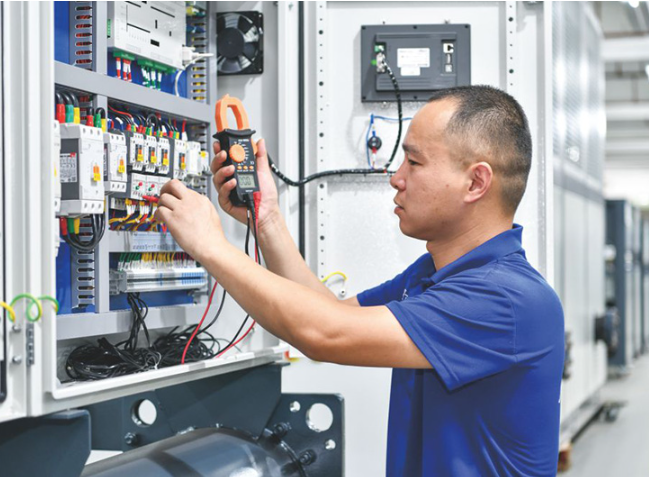
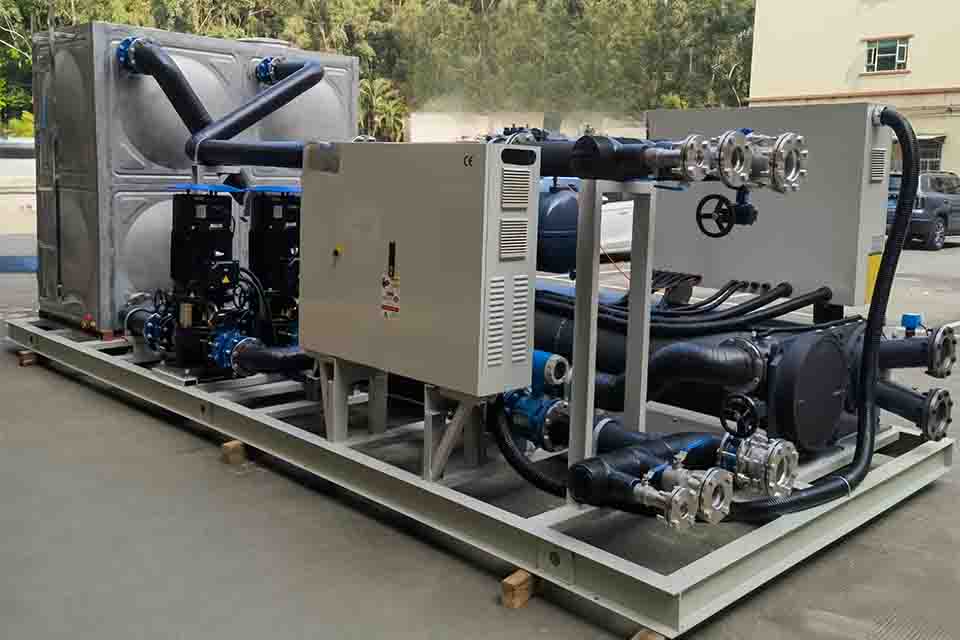
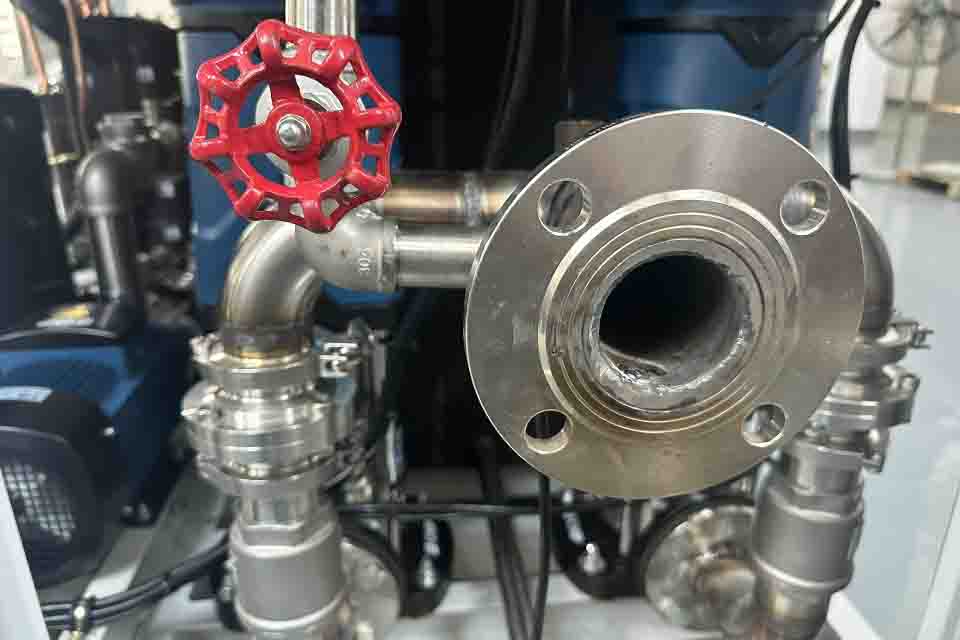

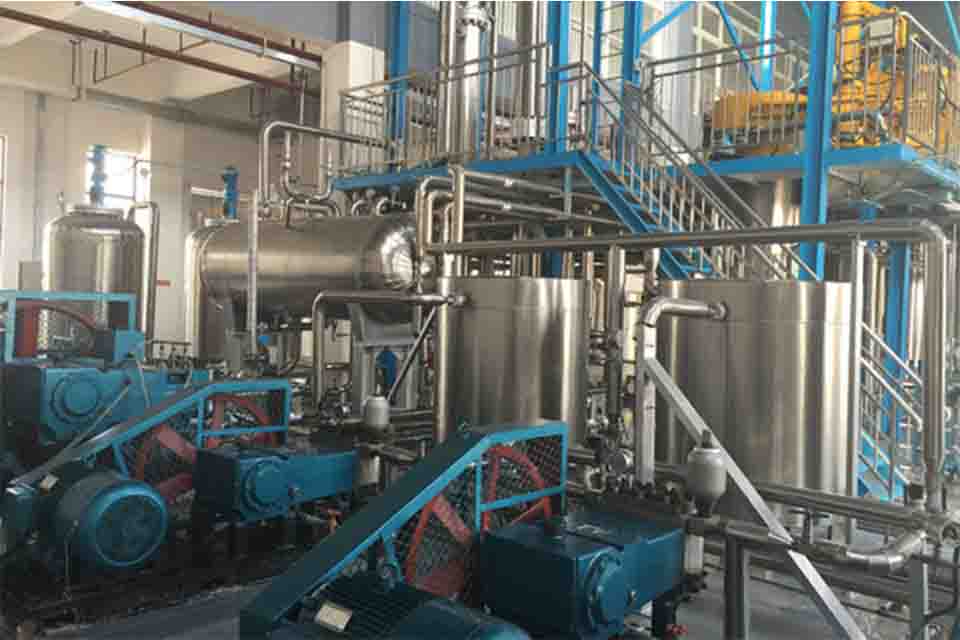
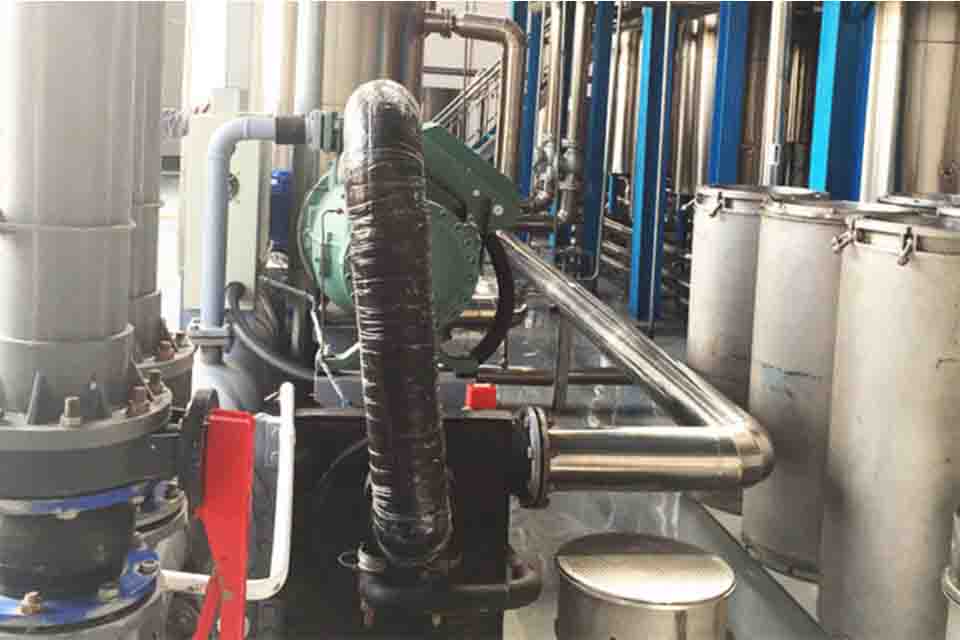
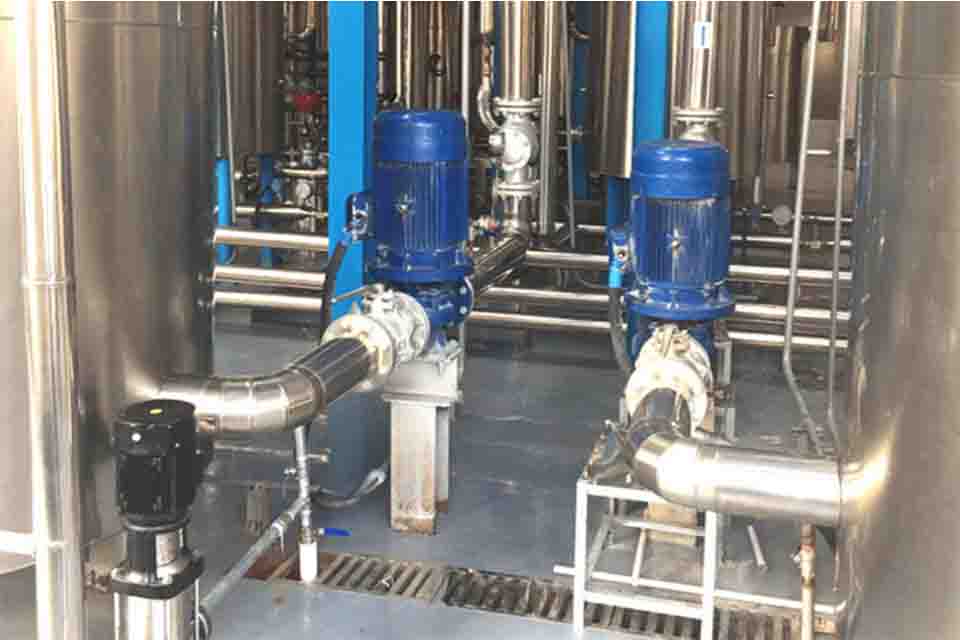
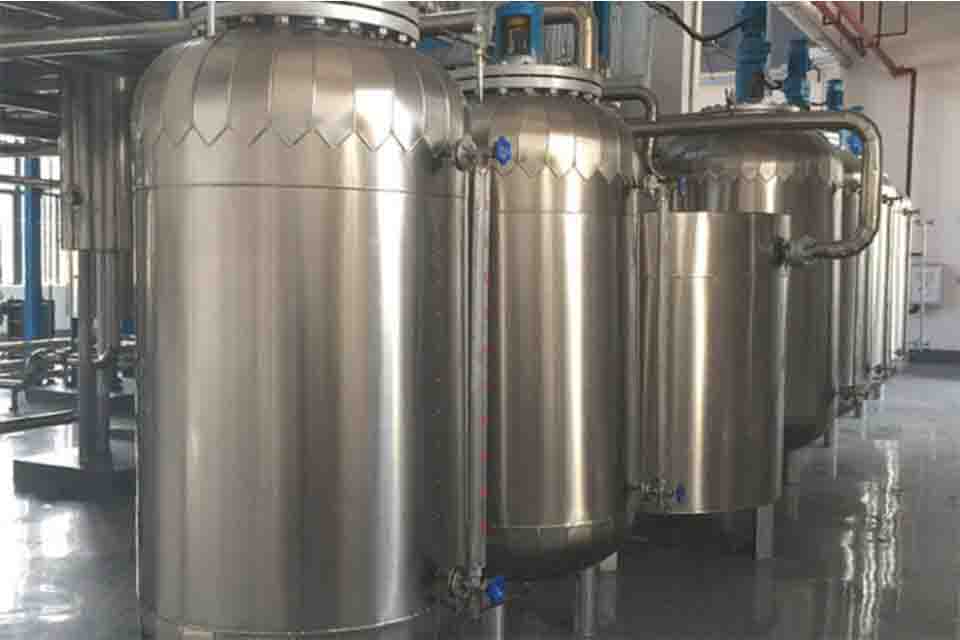
Чому охолодження сирого молока є вирішальним для вашої молочної ферми
Охолодження сире молоко негайно після доїння має першочергове значення для збереження якості та запобігання псуванню. Тепле молоко є ідеальним середовищем для розмноження бактерій, що призводить до погіршення якості та потенційних ризиків для здоров’я.
- Збереження якості: Швидке охолодження уповільнює ріст бактерій, зберігаючи смак, текстуру та поживну цінність молоко.
- Безпека: необхідна для процесів пастеризації Охолодження пригнічує ріст шкідливих бактерій, забезпечуючи молоко безпечний для споживання та переробки.
- Подовжений термін зберігання: ізолюйте свої продукти, щоб підтримувати температуру, необхідну для свіжості. Правильне охолодження значно подовжує термін зберігання з молоко, зменшуючи відходи та максимізуючи прибуток.
кожен молочник знає цю якість молоко починається з правильного охолодження. Це перший крок у забезпеченні безпечного та прибуткового продукту.
Типи молочних охолоджувачів: пошук правильного рішення для вашої ферми
Кілька видів охолоджувачі молока доступні, кожен з яких розроблений для конкретних потреб і масштабів виробництва, включаючи варіанти для навколишнього середовища та охолодження. Розуміння цих відмінностей допоможе вам вибрати ідеальне рішення для вашої операції.
- Охолоджувачі занурення/Ice Bank: Інтегровано в резервуар для молока з ізольованим кожухом може допомогти підтримувати температуру, необхідну для якісного зберігання., ці чиллери використовуйте охолодження прямого розширення або охолоджену воду з льоду остудіть молоко. Ідеальний для менших ферми.
- Пластинчасті холодильні машини: Високоефективний для великих операцій, пластина чиллери використовувати серію пластин як теплообмінники швидко прохолодного молока коли він протікає через охолоджувач для підтримки оптимальної температури. Рішення для охолодження низькотемпературних чиллерів забезпечують додаткові можливості охолодження.
- Охолоджувачі резервуарів для сипучого молока: Інтегровано з резервуари для зберігання, ці пристрої поєднують зберігання та охолодження в одному пакет, оптимізуючи процес. Також пропонуємо спеціалізовані гліколеві охолоджувачі для точного контролю температури.
Вибір правильного резервуара для молока з належним кожухом може значно покращити процес охолодження. тип залежить від вашого щоденного молоко виробництво (вимірюється в галонів молока, обробленого за допомогою наших передових систем охолодження пастеризованого молока), майбутні плани розвитку та бюджет для ваших систем охолодження, включаючи використання чиллерів, які працюють 24 години на добу. Невелика ферма, яка виробляє кілька сотень галонів день може вибрати для занурення чиллер, тоді як більша операція, яка виробляє тисячі галонів, може виграти від плити чиллер.
Як працюють охолоджувачі молока?
Розуміння основних принципів роботи охолоджувачі молока може допомогти вам оцінити їх важливість і прийняти обґрунтовані рішення щодо обслуговування та експлуатації.
більшість чиллери використовувати парокомпресійний холодильний цикл. Це включає а компресор, конденсатор і випарник, які працюють разом для циркуляції холодоагенту, який поглинає та розсіює тепло. Тепло молоко входить до танк або плита теплообмінник, а холодоагент поглинає тепло, охолоджуючи молоко. Потім нагрітий холодоагент віддає тепло в конденсаторі, безперервно повторюючи цикл.
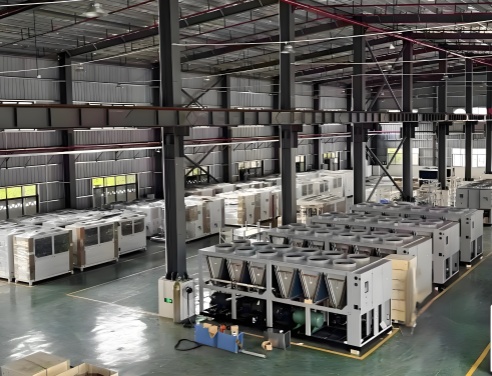
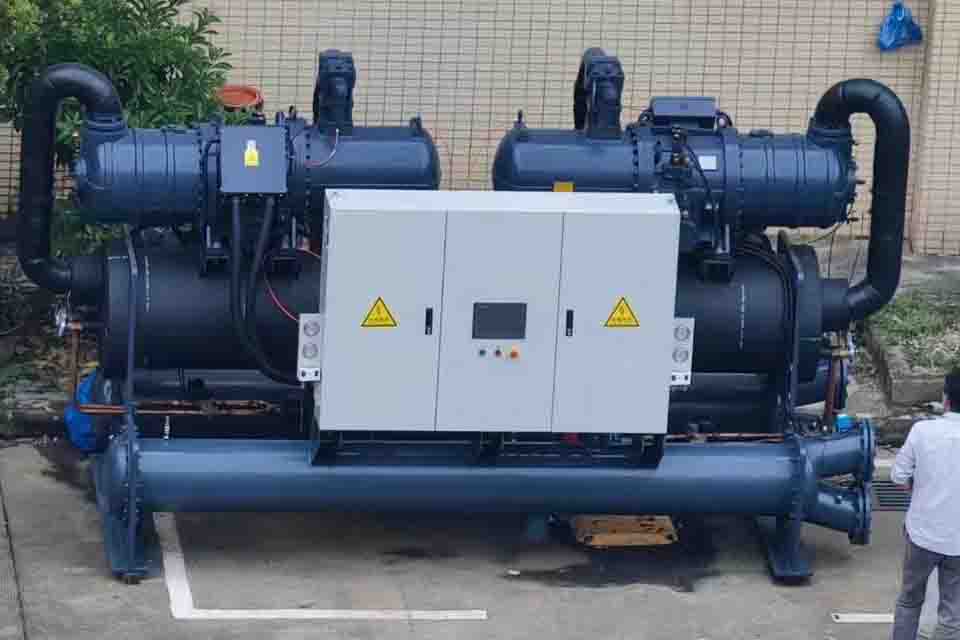
Основні міркування при виборі молочних охолоджувачів
Вибір правильного чиллер передбачає розгляд кількох важливих факторів, які впливатимуть на його продуктивність, ефективність і довговічність.
- Потужність (HP): Потужність охолодження, виміряна в кінських силах (HP), повинна бути достатньою для щоденного використання молоко обсяг. Більший стадо і більша продуктивність молока вимагає більшого к.с чиллер. Розглянемо Гвинтові центральні охолоджувачі з повітряним охолодженням для потреб високопродуктивного охолодження.
- Розмір і матеріал бака: Виберіть кулер, який відповідає вашим конкретним потребам. танк розмір, який відповідає вашому виробництву та зберігання потреби. Нержавіюча сталь є кращим матеріалом через її довговічність і санітарні властивості.
- Енергоефективність: Вибирайте енергоефективні моделі з такими функціями, як компресори зі змінною швидкістю, щоб зменшити експлуатаційні витрати.
- Легкість очищення: Очищення та дезінфекція молочний резервуар і чиллер система має важливе значення для гігієни. Шукайте конструкції, які спрощують цей процес.
Зробити правильний вибір вимагає ретельного розгляду ваших конкретних потреб і планів на майбутнє.
Технічні характеристики резервуара для молока: на що звернути увагу
Розуміння технічних характеристик резервуару для молока має важливе значення для прийняття обґрунтованого рішення щодо пастеризації та технологічного охолодження. Ось розбивка ключових факторів:
| Особливість | опис |
| Ємність | Вимірюється в галонах або літрах, що означає загальний об’єм молока танк може тримати. |
| матеріал | Нержавіюча сталь є стандартом гігієнічності та довговічності. |
| Ізоляція | Теплові ізоляція зводить до мінімуму коливання температури і знижує споживання енергії. |
| Система агітації | Забезпечує навіть температура молока і запобігає розшарування крему. |
| Елементи керування | Цифрове керування забезпечує точність контроль температури і можливості моніторингу. |
Перегляд цих специфікацій допоможе переконатися, що танк відповідає вашим конкретним вимогам. Розглянемо Гвинтові центральні охолоджувачі з водяним охолодженням для великомасштабних операцій охолодження.
Налаштування вашого молочного охолоджувача: індивідуальні рішення для вашої ферми
Ми розуміємо, що один розмір не підходить для всіх галузь молочного скотарства. Тому ми пропонуємо економічні системи охолодження індивідуальні рішення від Paul Mueller Company можуть підвищити ефективність виробництва. рішення, створені для задоволення ваших унікальних потреб ферма.
- Розмір і конфігурація бака: ми можемо налаштувати в танк розмір і форма відповідно до наявного простору та обсягу виробництва.
- Система охолодження: Ми пропонуємо обидва з повітряним і водяним охолодженням Варіанти чиллерів, які відповідають вашим умовам навколишнього середовища та комунальній інфраструктурі.
- Системи управління: Розширені системи керування з можливістю реєстрації даних і віддаленого моніторингу доступні для покращення точність і контроль.
- Спеціалізовані функції: Ми можемо включити спеціальні функції, такі як автоматизовані системи очищення та компресори зі змінною швидкістю, для підвищення ефективності та гігієни.
Наша команда досвідчених інженерів буде тісно співпрацювати з партнери молочної ферми проектувати та будувати a чиллерне рішення призначені для вашої роботи, оптимізуючи ваші процес охолодження і максимізація вашого прибутку.
Важливість резервування та надійності молочних охолоджувачів
в молочна промисловість, обладнання надійність не підлягає обговоренню. Несправність холодильної машини може призвести до значних молоко втрати та фінансові невдачі. Тому наголошуємо надмірність і надійний дизайн системи.
- Надлишкові компоненти: Наявність резервних компонентів, наприклад вторинних компресор, забезпечує продовження охолодження, навіть якщо один компонент виходить з ладу.
- Міцна конструкція: Ми будуємо свій чиллери з високоякісними матеріалами та компонентами, щоб витримувати вимоги безперервної роботи.
- Профілактичне обслуговування: Регулярне технічне обслуговування та перевірки мають вирішальне значення для запобігання поломкам і забезпечення довгострокової надійності. Вибухозахищені охолоджувачі необхідні для безпеки в небезпечних середовищах.
Інвестування в надійне чиллери, молочні спеціальний, забезпечує послідовне охолодження, захищає ваші цінності молоко, і мінімізує ризик дорогого простою.
Співпраця з перевіреним виробником охолоджувачів молока
Вибір правильного охолоджувач молока Виробник так само важливий, як і вибір правильного обладнання. Шукайте партнера, який розуміє унікальні потреби молочна промисловість і прагне надавати довгострокову підтримку.
- Експертиза: Спеціалізований виробник, як ми, має знання та досвід для проектування та виготовлення чиллери, призначені для молочної промисловості.
- Спеціальні рішення: Ми розуміємо, що кожен ферма має особливі вимоги та пропонує індивідуальні рішення.
- Якісні продукти: Ми виготовляємо наше обладнання з використанням високоякісних компонентів і матеріалів для довговічності та довговічності надійність.
- Післяпродажна підтримка: Комплексні гарантії та оперативне післяпродажне обслуговування забезпечують спокій і мінімізують час простою.
Виберіть партнера, який відданий вашому успіху та розуміє важливість надійності охолодження грає у вашому молочний операція. Також ми пропонуємо широкий асортимент інших промислових чиллерів, в т.ч Гвинтові чиллери з повітряним охолодженням і Гвинтові чиллери з водяним охолодженням, щоб задовольнити різноманітні потреби в охолодженні.
Поширені запитання про охолоджувачі молока
Як визначити розмір холодильної машини для моєї ферми?
Розмір холодильної машини залежить від кількох факторів, у тому числі від розміру стада, добового виробництва молока (галонів) і бажаного часу охолодження. Наші фахівці допоможуть вам розрахувати відповідний розмір для ваших конкретних потреб.
Яке технічне обслуговування потрібне для охолоджувача молока?
Регулярне технічне обслуговування включає очищення та санітарну обробку бака, перевірку та очищення котушок конденсатора та випарника, перевірку рівня холодоагенту та змащування рухомих частин.
Які міркування щодо енергоефективності молочних охолоджувачів?
Шукайте чиллери з високоефективними компресорами та приводами зі змінною швидкістю, щоб мінімізувати споживання енергії. Належна ізоляція молочного резервуару також є важливою для енергоефективності.
На які функції безпеки слід звернути увагу в охолоджувачі молока?
Основні функції безпеки включають реле високого та низького тиску, сигналізацію температури та засоби керування аварійним відключенням для забезпечення безпечної пастеризації.
Ключові висновки: оптимізація процесу охолодження молочних продуктів
- Швидкий охолодження з сире молоко має вирішальне значення для збереження якості, безпеки та пастеризованого молока термін зберігання.
- Виберіть правильне чиллер тип і потужність залежно від конкретного обсягу виробництва та потреби в охолодженні.
- Нержавіюча сталь танки із належною ізоляцією є важливими для підтримки оптимальної температура молока.
- Вибираючи холодильну машину, віддайте перевагу енергоефективності та простоті очищення.
- Регулярне технічне обслуговування має вирішальне значення для максимізації терміну служби та продуктивності чилера.
- Співпраця зі спеціалізованим охолоджувач молока виробник забезпечує експертне керівництво та індивідуальні рішення.
Впроваджуючи ці стратегії, ви можете оптимізувати процес охолодження молочних продуктів, максимізувати якість продукції та підвищити прибутковість вашої ферми.

